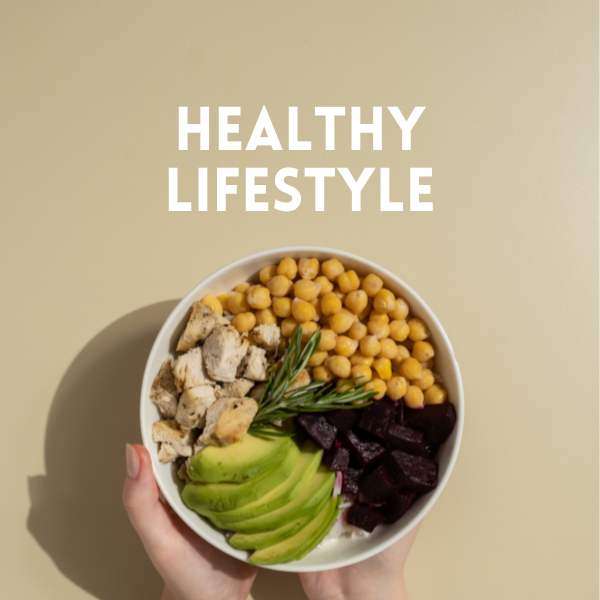Are you looking to improve your gut health naturally?
Or do you want to boost your overall well-being and enhance your digestive health?
Your gut health impacts more than just digestion—it plays a significant role in your well-being. From nutrient absorption to immune function, a healthy gut sets the stage for a thriving body and mind.
This article explores effective strategies to improve your gut health naturally. From understanding the gut microbiome to navigating the top 10 gut-friendly foods and making lifestyle changes, we’ll cover it all.
Let’s dive into how you can naturally improve your gut health.

The importance of gut health
Maintaining a healthy gut is essential for optimal wellness.
Did you know that approximately 70% to 80% of your immune system resides in your gut?
A balanced gut microbiome promotes proper digestion, supports immune function, and even influences your mood and mental health. Taking care of your gut means taking care of your entire body.
Understanding the gut microbiome
Within your gastrointestinal tract resides a vast community of microorganisms called the gut microbiome. This ecosystem consists of beneficial bacteria, harmful bacteria, viruses, and fungi.
You should focus on achieving a balanced gut microbiome for good health, as it aids in breaking down food, producing essential nutrients, and maintaining a robust immune system.

Factors affecting gut health
Numerous factors can influence the health of your gut. Understanding these factors will significantly improve your gut health naturally.
Diet and nutrition
Your diet plays a vital role in maintaining a healthy gut. Opt for a well-rounded, nutritious diet with plenty of fiber-rich foods like fruits, vegetables, whole grains, and legumes. These foods nourish beneficial gut bacteria while avoiding processed foods, excessive sugar, and unhealthy fats that can disrupt the gut microbiome.
Probiotics and fermented foods
Introducing probiotics into your diet can contribute to a healthier gut. Probiotics are beneficial bacteria that support gut health. Add yogurt, kefir, sauerkraut, and kimchi into your meals. These foods help restore and maintain a healthy balance of gut bacteria.
Stress management
Chronic stress can take a toll on your gut health. Engage in stress-reducing activities such as meditation, yoga, deep breathing exercises, and hobbies that bring you joy. Prioritizing self-care can have a positive impact on your gut health.

Regular exercise
Physical activity stimulates the gut and promotes healthy digestion. Aim for at least 30 minutes of moderate exercise daily. Choose activities you enjoy, such as walking, jogging, cycling, or dancing.
Quality sleep and rest
Adequate sleep is vital for a healthy gut. Aim for 7-8 hours of quality sleep each night. Establish a consistent sleep schedule and create a peaceful sleep environment to optimize rest.
Hydration
Staying properly hydrated supports optimal gut health. Drink adequate water throughout the day to keep your digestive system functioning optimally.
Minimizing toxin exposure
Reduce exposure to harmful substances such as pesticides, pollutants, and toxins in certain foods, cleaning products, and personal care items. Opt for organic produce and choose natural household products whenever possible.
Top 10 foods to improve gut health naturally
Certain foods are particularly beneficial for improving gut health. Include these foods in your diet to improve your gut health naturally.
Fiber-rich foods
Fiber acts as fuel for beneficial gut bacteria. Eat foods like fruits, vegetables, whole grains, and legumes in your meals to increase your fiber intake.
Prebiotic foods
Prebiotics are non-digestible fibers that nourish the beneficial bacteria in your gut. Examples include garlic, onions, leeks, asparagus, and bananas.
Probiotic foods
Probiotic-rich foods contain live beneficial bacteria that help maintain a healthy gut microbiome. Include yogurt, kefir, sauerkraut, kimchi, and kombucha in your diet.

Omega-3 fatty acids
Omega-3 fatty acids possess anti-inflammatory properties that support gut health. Include fatty fish (such as salmon and sardines), flaxseeds, chia seeds, and walnuts in your diet.
Bone broth
Bone broth is rich in nutrients that support gut health, including collagen and amino acids. It helps repair the gut lining and reduce inflammation.
Ginger and turmeric
Ginger and turmeric possess anti-inflammatory and antioxidant properties that can soothe the digestive system. Incorporate these spices into your cooking or enjoy them as herbal teas.
Leafy green vegetables
Leafy greens like spinach, kale, and Swiss chard are packed with nutrients and fiber, supporting a healthy gut and youthful skin. Include them in salads, smoothies, or stir-fries.
Fermented foods
Fermented foods are rich in probiotics and enzymes that aid digestion. Examples include tempeh, miso, natto, and fermented pickles.
Apple cider vinegar
Apple cider vinegar can help improve digestion and promote a healthy gut. Dilute it in water and consume it before meals or use it as a dressing in salads.

Lifestyle changes for optimal gut health
In addition to dietary modifications, certain lifestyle changes can contribute to better gut health.
Stress reduction techniques
Chronic stress negatively impacts gut health—practice stress management techniques like meditation, deep breathing, or relaxing activities.
Regular exercise routine
Physical activity promotes healthy digestion and overall gut health. Find activities you enjoy and aim for at least 30 minutes of exercise daily.
Prioritizing quality sleep
Adequate sleep is essential for gut health. Make sleep a priority by establishing a regular sleep schedule and creating a peaceful sleep environment.
Staying hydrated
Proper hydration supports digestion and helps maintain a healthy gut. Drink an adequate amount of water throughout the day.

Minimizing toxin exposure
Reducing exposure to toxins and pollutants benefits gut health. Choose organic produce, natural cleaning products, and personal care items whenever possible.
Moderate alcohol consumption
Excessive alcohol consumption can harm the gut microbiome. Drink alcohol in moderation or consider abstaining for better gut health.
Quitting smoking
Smoking negatively affects gut health and increases the risk of digestive disorders. Quitting smoking can significantly improve your gut health and overall well-being.
Takeaway
Your gut health is the foundation of your overall well-being. Imagine having better digestion, increased nutrient absorption, and a stronger immune system.
A thriving gut also supports weight management, as a balanced gut microbiome can contribute to a healthier metabolism.
Don’t underestimate the power of your gut. It’s not just about what you eat—it’s about nurturing and supporting the intricate ecosystem within you.
With every wholesome meal, every probiotic-rich food you savor, and every stress-reducing practice you embrace, you’re giving your gut the love and care it deserves.
So, start today. Take the first step towards a healthier gut by incorporating gut-boosting foods into your diet, adopting lifestyle changes that promote balance and well-being, and being mindful of your overall health choices.
Small changes can have a big impact.

FAQs
Can gut health affect mental health?
Absolutely! There is a strong connection between gut health and mental health. In fact, approximately 90% of the neurotransmitter serotonin, which plays a key role in mood regulation, is produced in the gut. Imbalances in the gut microbiome can contribute to mental health issues like anxiety and depression.
Are probiotic supplements necessary for improving gut health?
While probiotic supplements can be beneficial, it’s best to obtain probiotics from natural food sources whenever possible. Whole foods like yogurt, kefir, sauerkraut, and kimchi offer a wider range of beneficial bacteria and other nutrients supporting gut health.
How long does it take to improve gut health naturally?
Improving gut health naturally is gradual, and the timeline varies for each individual. With consistent dietary and lifestyle changes, you can expect to notice significant improvements within a few weeks to a few months. Patience and consistency are key.
Are there any side effects of improving gut health naturally?
While improving gut health naturally is generally safe, some individuals may experience temporary digestive discomfort, such as bloating or gas, as the gut adjusts to dietary changes. These symptoms typically subside over time. If any concerns persist or worsen, it’s advisable to consult a healthcare professional.
Can gut health affect weight management?
Yes, there is evidence to suggest that an imbalance in the gut microbiome can contribute to weight gain and obesity. Improving gut health through dietary and lifestyle changes can positively impact weight management efforts.


